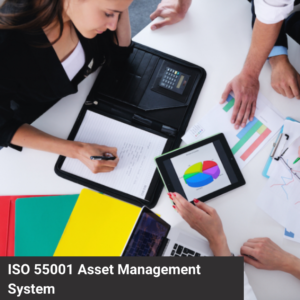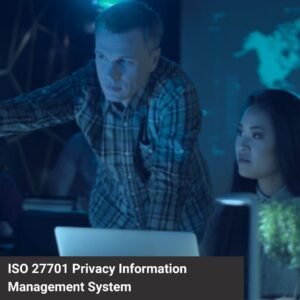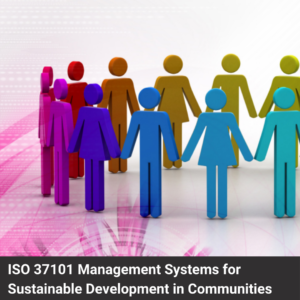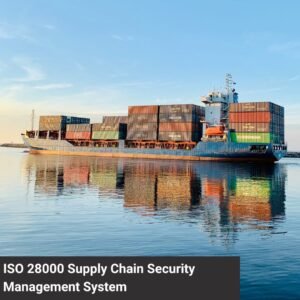Imagine that your organization has a tool that supports every step of service lifecycle, from ideation to planning, from delivery to improvement. Such a tool exists in the form of a service management system, based on an internationally recognized standard: ISO/IEC 20000-1.
What is ISO/IEC 20000-1?
Published initially in 2005 and subsequently updated in 2011 and 2018, ISO/IEC 20000-1 is a Type A management system standard that sets out the minimum requirements for an organization to establish, implement, maintain, and continually improve a service management system (SMS).
An SMS consists of policies, processes, resources, objectives, and documented information that are put together and are coordinated to achieve the objectives of the organization. An effective SMS enables organizations to direct and control their service management activities, identify and mitigate risks related to their activities, and identify and realize opportunities that improve service provision.
The requirements of ISO/IEC 20000-1 are generic and applicable to organizations of all sizes, sectors, and complexities. According to ISO Survey 2020, there are more than 7,500 certificates issued to organizations worldwide. Contrary to the common misperception that this standard is only applicable to IT infrastructure, ISO/IEC 20000-1 can be used for various other services, including, finance, cloud, business process outsourcing, etc.

Figure 1: Compatibility between ISO/IEC 20000-1 and various types of services
As most of the ISO management system standards, ISO/IEC 20000-1 is created based on the High-Level Structure (HLS) and shares the common terms and core definitions. This alignment in structure enables an easier integration with other management systems based on standards such as ISO 9001, ISO/IEC 27001, and ISO 22301. Apart from ensuring consistency and reducing costs, integrating several management systems can increase the organization’s capabilities to deliver consistent and quality services and can assist in the maintenance and improvement of a sustainable business model.
Benefits of ISO/IEC 20000-1 for service providers
An effective SMS based on the requirements of ISO/IEC 20000-1 has the potential to shape and improve an organization’s way of working and enhance service management practices.
Some of the benefits that an organization would gain by implementing an SMS based on ISO/IEC 20000-1 include:
How to get started with this training?
ISO/IEC 20000-1 is a Type A management system standard that sets out the minimum requirements for an organization to establish, implement, maintain, and continually improve a service management system (SMS).
$ 450,00 – $ 1.250,00Price range: $ 450,00 through $ 1.250,00
ISO/IEC 20000-1 is a Type A management system standard that sets out the minimum requirements for an organization to establish, implement, maintain, and continually improve a service management system (SMS).
$ 450,00 – $ 1.250,00Price range: $ 450,00 through $ 1.250,00
Imagine that your organization has a tool that supports every step of service lifecycle, from ideation to planning, from delivery to improvement. Such a tool exists in the form of a service management system, based on an internationally recognized standard: ISO/IEC 20000-1.
What is ISO/IEC 20000-1?
Published initially in 2005 and subsequently updated in 2011 and 2018, ISO/IEC 20000-1 is a Type A management system standard that sets out the minimum requirements for an organization to establish, implement, maintain, and continually improve a service management system (SMS).
An SMS consists of policies, processes, resources, objectives, and documented information that are put together and are coordinated to achieve the objectives of the organization. An effective SMS enables organizations to direct and control their service management activities, identify and mitigate risks related to their activities, and identify and realize opportunities that improve service provision.
The requirements of ISO/IEC 20000-1 are generic and applicable to organizations of all sizes, sectors, and complexities. According to ISO Survey 2020, there are more than 7,500 certificates issued to organizations worldwide. Contrary to the common misperception that this standard is only applicable to IT infrastructure, ISO/IEC 20000-1 can be used for various other services, including, finance, cloud, business process outsourcing, etc.

Figure 1: Compatibility between ISO/IEC 20000-1 and various types of services
As most of the ISO management system standards, ISO/IEC 20000-1 is created based on the High-Level Structure (HLS) and shares the common terms and core definitions. This alignment in structure enables an easier integration with other management systems based on standards such as ISO 9001, ISO/IEC 27001, and ISO 22301. Apart from ensuring consistency and reducing costs, integrating several management systems can increase the organization’s capabilities to deliver consistent and quality services and can assist in the maintenance and improvement of a sustainable business model.
Benefits of ISO/IEC 20000-1 for service providers
An effective SMS based on the requirements of ISO/IEC 20000-1 has the potential to shape and improve an organization’s way of working and enhance service management practices.
Some of the benefits that an organization would gain by implementing an SMS based on ISO/IEC 20000-1 include:
How to get started with this training?







